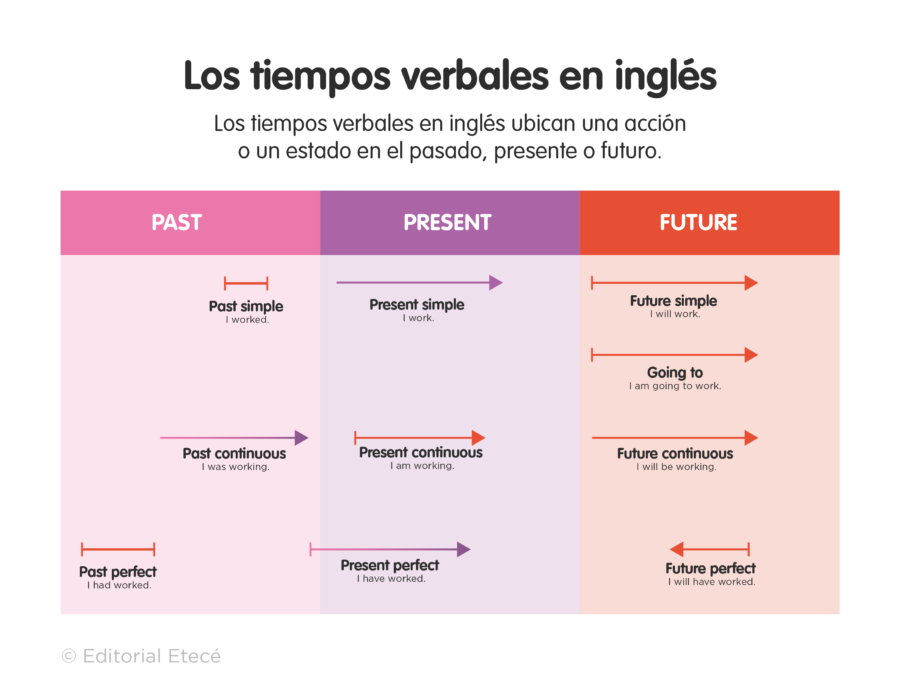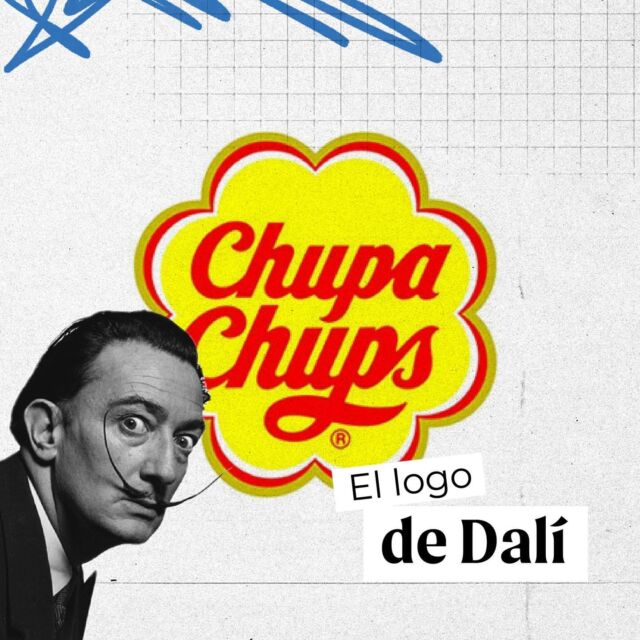Will be es el verbo to be (que en español se puede traducir como “ser” y “estar”) conjugado en futuro simple (future simple), que es uno de los tiempos futuros que existe en inglés. Will be significa “estaré, estará, etc” o “seré, será, etc”, según el contexto. Por ejemplo:
- The party will be on August 10th. / La fiesta será el 10 de agosto.
- I will be in London next week. / Estaré en Londres la semana próxima.
Will es un verbo modal que indica futuro. Will por sí solo no tiene traducción al español: adquiere significado junto al verbo principal (en este caso, be). La traducción de will be es: “estaré, estará, etc” / “voy a estar, va a estar, etc” o “seré, será, etc” / “voy a ser, va a ser, etc”.
Will be, como todos los verbos en futuro simple, es invariable, es decir, no cambia su conjugación según el sujeto. Por ejemplo: I will be in New York on the 22nd. / She will be in New York on the 22nd.
Contracciones:
- ‘ll es la contracción de will. La contracción se utiliza en contextos relativamente informales. Por ejemplo: She’ll be with us during her vacation.
- Won’t es la contracción de will not. La contracción se utiliza en contextos relativamente informales. Por ejemplo: I won’t be at the presentation.
Estructura de oraciones con will be
Estructura afirmativa
| Sujeto | will be | complemento |
|---|---|---|
| I You He She It We They | will be | here tomorrow. |
Por ejemplo: I will always be with you. / Siempre estaré contigo.
Estructura negativa
| Sujeto | won’t be | complemento |
|---|---|---|
| I You He She It We They | won’t be | here tomorrow. |
Por ejemplo: The conference room will not be free tomorrow. / La sala de conferencias no estará libre mañana.
Estructura interrogativa
| Will | Sujeto | be…? |
|---|---|---|
| Will | I you he she it we they | be…? |
Por ejemplo: Will you be here tomorrow? / ¿Estarás aquí mañana?
Atención: De ser necesaria una palabra interrogativa (where, what, when), esta va antes del will. Por ejemplo: Where will Peter be on the weekend? / ¿Dónde estará Peter el fin de semana?
Respuestas cortas
Para responder a respuestas cortas, se utiliza will o won’t según corresponda, sin repetir be. Las respuestas cortas afirmativas no se pueden contraer. Por ejemplo: Will you be here when father arrives? Yes, I will. (Y no: Yes, I will be).
Ejemplos de oraciones con will be
- Rachel will be here soon.
Rachel estará aquí pronto. - The house will be ready for you.
La casa estará lista para ti. - She will be a lawyer.
Ella será abogada. - The girls will be good students.
Las niñas serán buenas estudiantes. - The boss will be here in a minute.
El jefe estará aquí en un minuto. - We will be in China next month.
Estaremos en China el mes próximo. - Next week will be June.
La semana próxima será junio. - I’ll be ready in five minutes.
Estaré listo en cinco minutos. - The boys will be tired after the gym class.
Los niños estarán cansados luego de la clase de gimnasia. - He’ll be happy to see you.
Estará feliz de verte. - Stephen will be back in the city tomorrow.
Stephen estará de regreso a la ciudad mañana. - It will be rainy tomorrow.
Estará lluvioso mañana. - You’ll be a good driver.
Serás un buen conductor. - Theresa will be back at eight.
Theresa estará de regreso a las ocho. - They’ll be ready to practice the routine.
Estarán listos para practicar la rutina. - I will not be the youngest.
No seré el más joven. - I will not consider it.
No lo voy a considerar. - She will not be busy this week.
No estará ocupada esta semana. - He won’t be bored soon.
Éll no estará aburrido pronto. - She won’t be helpful.
Ella no será útil. - Your parents will not be in India by the end of the week.
Tus padres no estarán en India para el final de esta semana. - He will not be a tall man.
Él no será un hombre alto. - I will not be in my office today.
No estaré en mi oficina hoy. - They won’t be surprised about what happened.
Ellos no estarán sorprendidos por lo que sucedió. - The keys will not be where you left them.
Las llaves no estarán donde las dejaste. - The stadium will not be built for the next Olympic Games.
El estadio no será construido para los próximos juegos olímpicos. - He won’t be angry.
Él no estará enojado. - She won’t be home.
Ella no estará en casa. - Jason won’t be here on time.
Jason no estará aquí a tiempo. - It won’t be fun.
No será divertido. - Will they be tired?
¿Estarán cansados? - Will the car be ready at five?
¿El auto estará listo a las cinco? - Will Michael be a pilot?
¿Michael será piloto? - Will you be friends forever?
¿Ustedes serán amigos para siempre? - Will the boy be at school?
¿El niño estará en la escuela? - Will it be cold in the morning?
¿Hará frío por la mañana? - Will Suzanne be a good swimmer?
¿Suzanne será una buena nadadora? - Will the teacher be good to the children?
¿El profesor será bueno con los niños? - Will this be expensive?
¿Esto será caro? - Will they be excited?
¿Estarán entusiasmados? - Will he be in the news?
¿Él estará en las noticias? - Will you be at the movie theater?
¿Estarás en el cine? - Will he be upset?
¿Él estará molesto? - Will you be there for me when I need you?
¿Estarás allí para mí cuando te necesite? - Will anyone be unhappy?
¿Alguien será infeliz? - Will you be a good student?
¿Serás un buen estudiante? - Will he be in charge?
¿Él estará a cargo? - Will you be my teacher?
¿Serás mi profesor? - Will Serena be the champion?
¿Serena será la campeona? - Will your father be the new principal?
¿Tu padre será el nuevo director?
Otros usos de will be
Will be como auxiliar del futuro continuo
Will be (además del verbo principal to be en futuro simple), es el auxiliar que junto a un verbo principal forman el futuro continuo (future continuous). Por ejemplo: This time next Saturday, I’ll be lying on the beach. / El próximo sábado a esta hora, voy a estar recostada en la playa.
El futuro continuo se traduce como “estaré haciendo”, “estará comiendo”, etc. o “voy a estar haciendo”, “voy a estar comiendo”, etc.
El futuro continuo se utiliza para:
- Expresar acciones que estarán en progreso en un momento particular en el futuro. Por ejemplo: This time next week, I’ll be celebrating the good news. / La semana que viene a esta hora, estaré celebrando las buenas noticias.
- Expresar acciones futuras agendadas. Por ejemplo: I’ll be seeing Jenny this afternoon. / Estaré viendo a Jenny esta tarde.
Atención: El futuro continuo es invariable, es decir, no cambia la conjugación según el sujeto. Por ejemplo: I will be sleeping at 1 a.m. / He will be sleeping at 1 a.m.
Estructura del futuro continuo
- Oraciones afirmativas. Sujeto + will be + verbo principal en participio pasado. Por ejemplo: Don’t call me at nine; I’ll be having dinner.
- Oraciones negativas. Sujeto + (won’t be) + -ing (verbo principal). Por ejemplo: I will not be seeing Peter this evening. Won’t be es la contracción de will not.
- Oraciones interrogativas. Will + sujeto + be + -ing + ? Por ejemplo: Will you be seeing Jim this evening?
Will be como auxiliar de la voz pasiva
Will be es el auxiliar que se utiliza para formar la voz pasiva en futuro simple (future simple) junto a un verbo principal en participio pasado. Por ejemplo: The building will be finished by February. / El edificio será terminado para febrero.
La voz pasiva en futuro simple se utiliza para expresar acciones en futuro donde el foco de atención no es el sujeto (persona o cosa que hace la acción) sino el objeto (persona o cosa que recibe la acción hecha por el sujeto). Por ejemplo: The meeting will be held at the lecture room. / La reunión será llevada a cabo en la sala de conferencias.
Estructura de la voz pasiva en futuro
- Oraciones afirmativas. Sujeto + will be + verbo principal en past participle. Por ejemplo: The presentation will be finished on time.
- Oraciones negativas. Sujeto + will not be (won’t be) + past participle. Por ejemplo: The building will not be finished by February.
- Oraciones interrogativas. Will + sujeto + be + past participle + ? Por ejemplo: Will the theater be reformed in the future?
Para tener en cuenta: No todas las oraciones en voz pasiva en inglés pueden traducirse de la misma manera al español. Hay usos de la voz pasiva en inglés que en español no se utilizan. Por ejemplo: You will be given a present. / Te darán una bicicleta. (y no: Serás dada una bicicleta.)
Ejemplos de oraciones con will be como auxiliar del futuro continuo
- This time next week, I’ll be reading a book on a beautiful beach.
A esta hora la semana próxima, estaré leyendo un libro en una bella playa. - I’ll be having lunch with my sister tomorrow.
Voy a almorzar con mi hermana mañana. - My friends will be coming over for lunch at noon.
Mis amigos vendrán a almorzar al mediodía. - I’ll be having dinner at 9 p.m.
Estaré cenando a las 9 p.m. - Pamela will be staying over tonight.
Pamela se quedará a dormir en casa hoy. - Bryan will not be seeing his girlfriend next weekend.
Bryan no verá a su novia el próximo fin de semana. - My father will not be traveling to London on business.
Mi padre no viajará a Londres por negocios. - I won’t be using your bicycle this afternoon.
No voy a estar usando tu bicicleta esta tarde. - Jonathan won’t be working from home tomorrow.
Jonathan no estará trabajando desde casa mañana. - We will not be staying at the same hotel again.
No nos vamos a quedar en el mismo hotel nuevamente. - Will you be passing by the library on your way home?
¿Pasarás por la biblioteca camino a casa? - Will you be using your car tomorrow?
¿Usarás tu auto mañana? - Will they be seeing the boss today?
¿Ellos verán al jefe hoy? - Will you be wearing your new coat tonight?
¿Usarás tu nuevo abrigo esta noche? - Will they be attending a formal dinner this evening?
¿Asistirán a una cena formal esta noche?
Ejemplos de oraciones con will be como auxiliar de la voz pasiva
- Our company will be taken over by a big corporation.
Nuestra compañía será adquirida por una gran corporación. - You will be told in writing if you get the job.
Te notificarán por mail si obtienes el trabajo. - Candidates will be contacted by e-mail.
Los candidatos serán contactados por e-mail. - Some non-profit organization will be awarded the Nobel Prize.
Alguna organización sin fines de lucro será otorgada el Premio Nobel. - Peter will be operated on next week.
Peter será operado la semana próxima. - The school will not be painted again this year.
La escuela no será pintada nuevamente este año. - I will not be offered that position.
No me ofrecerán esa posición. - Sonya won’t be chosen as the best student of the year.
Sonya no será elegida como la mejor alumna del año. - The medals won’t be given by the Queen this season.
Las medallas no serán otorgadas por la reina este año. - Employees won’t be notified in person.
Los empleados no serán notificados en persona. - Will the project be finished on time?
¿Se terminará el proyecto a tiempo? - Will the best team be selected?
¿Se elegirá al mejor equipo? - Will I be informed when it’s ready?
¿Se me informará cuando esté listo? - Will the bill be sent before the end of the month?
¿La factura va a ser enviada antes de fin de mes? - Will the exhibition be shown in Buenos Aires?
¿La exposición se va a mostrar en Buenos Aires?

Sigue con:





¿Te fue útil esta información?
Sí No¡Genial! gracias por visitarnos :)